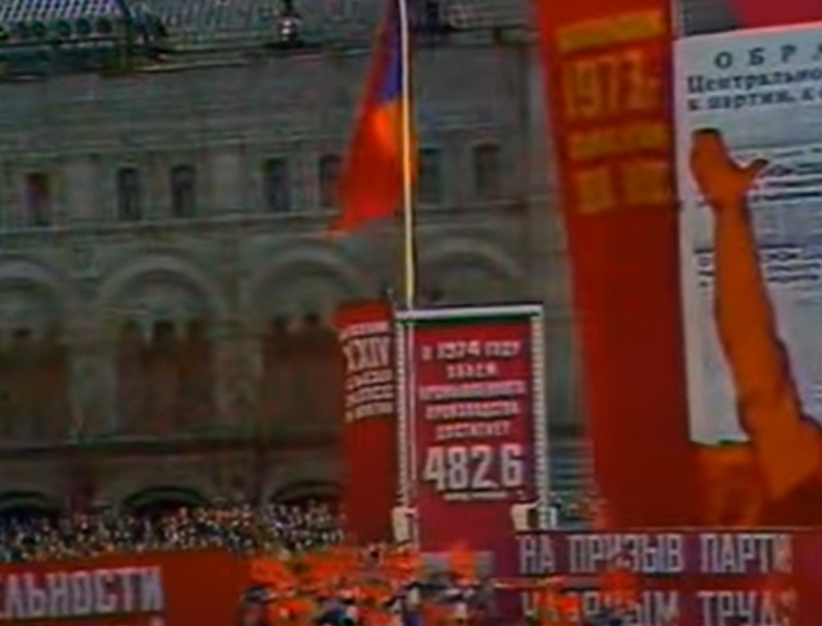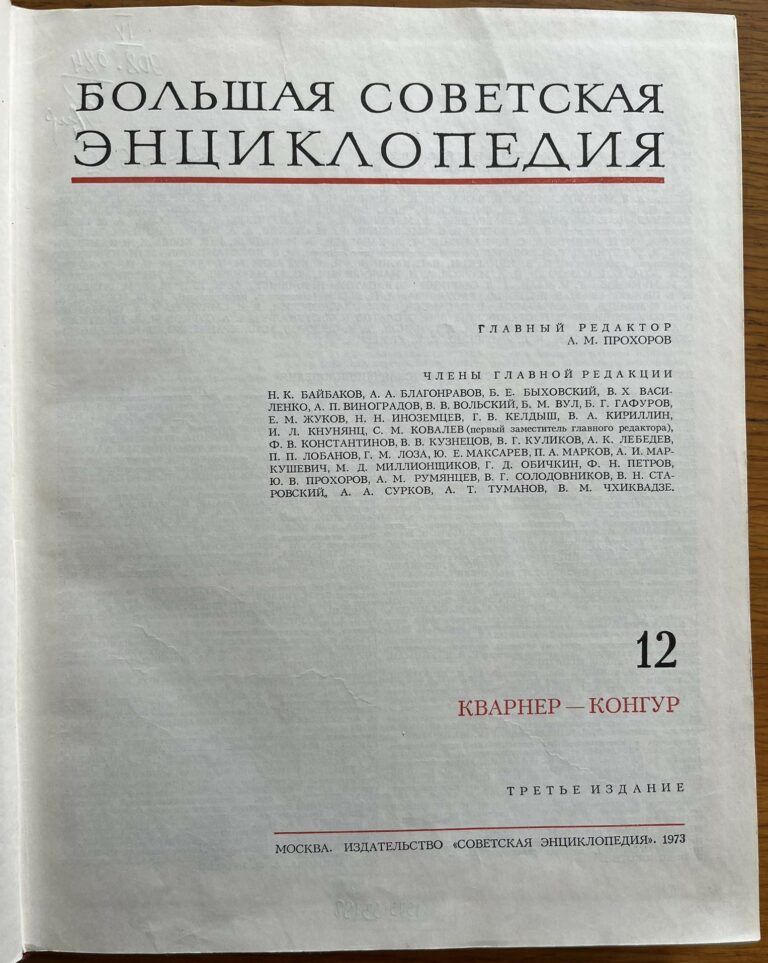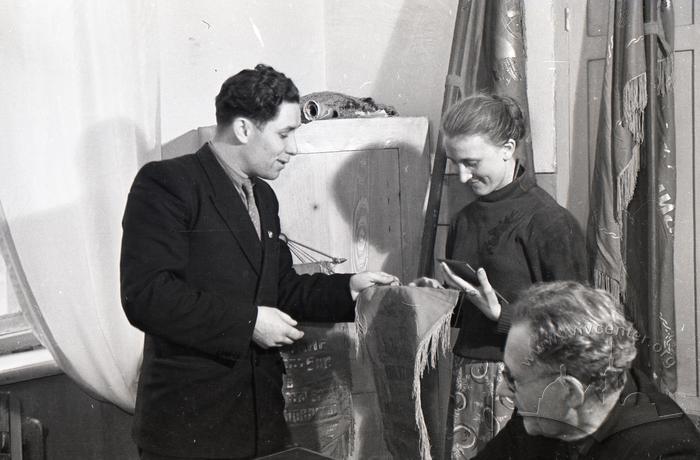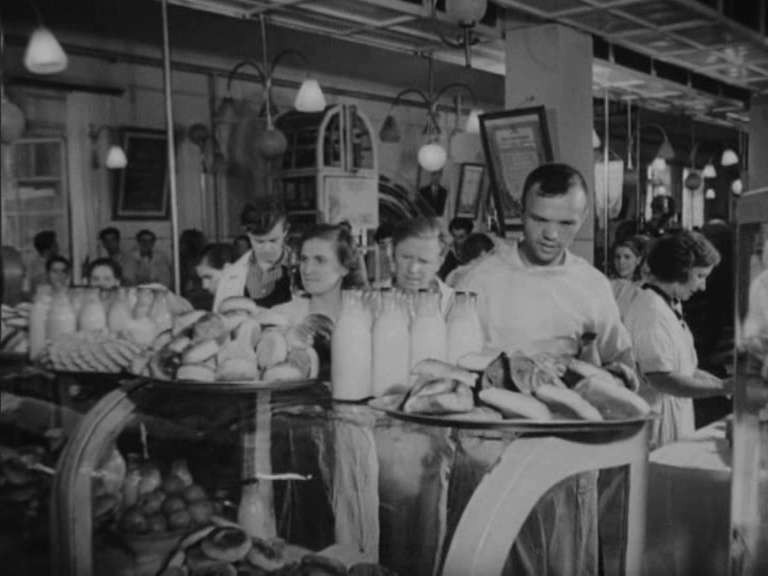
- Title:
Song of the Communist Labor Brigades
- Author:
- Year:
- 1956
- See more:
- listen to the song
- Original language:
- Ukrainian
Related sources:

Concerning the Intensification of the Fight Against Persons Who Avoid Socially Useful Work, statement 1961
The Soviet authorities not only motivated workers to labor feats, but also punished those who refused selfless work for the benefit of the motherland. For example, in February 1948, a decree of the Presidium of the Supreme Soviet of the USSR was signed "On the eviction from the Ukrainian SSR of persons who maliciously avoid work in agriculture and lead an anti-social, parasitic lifestyle." Similar approaches were approved by the resolution of the RSFSR from 1961, which encouraged to identify (that is,to report), punish and even imprison people who chose a non-socialist way of life. The document shows that despite official claims about the advantages of communist production and socialist competition, many people...

The Movement of Collectives and Shock Workers Brigades of Communist Labour, article
This article is part of the Soviet Encyclopedia and was written by Semion Romanovych (in life Srul Rakhmilevich) Gershberg (1908-1984). He was a researcher of Soviet history who specialized in the topic of "labor strikers". From 1931 to 1949, Gershberg worked for the Pravda newspaper and was fired during the 1949 anti-Semitic campaign in the USSR. Since 1949, he worked at the publishing house "Soviet Encyclopedia", where he held the position of deputy head of the editorial board. In 1961, he published the book "Movement of Collectives and Strikers of Communist Labor" and based on this research created the same article for the Great Soviet Encyclopedia (third edition 1969-1978, which consists of 30...

Members of the Communist Labor Brigade and the presentation of Komsomol tickets at the Mariupol Heavy Machinery Plant
The photo shows the moment of the ceremonial presentation of a Komsomol ticket to an employee of the Mariupol heavy engineering plant. In addition to the ticket, a party or Komsomol functionary hands an unknown woman a pennant, which may indicate that this new Komsomol member has already achived significant results in the performance of the party’s labor tasks. Most likely, she is a representative of the leaders of the plant, and it was important for the Soviet system that the leaders of the production were part of the Komsomol-party asset. If we follow the name of this source, then the young worker is part of the “communist labor brigade”, which was an...
The founders of the Soviet Union believed that the basis for new forms of labor was to be an amateur initiative and talents, of which the people have an endless source, managed by “nationwide accounting and control”. The method of introducing new forms of industry management was the widest propaganda of labor achievements. Soviet ideologists habitually cited Lenin who believed that labor could change a human being under socialism and advised how to organize socialist competition. This module by historian Bohdan Shumylovych is devoted to the topic of labor in communist propaganda, using the example of the 1960s.
Worked on the material:
- Research, comment
Bohdan Shumylovych
Comments and discussions


“Song of Communist Labor Brigades” was written in 1956 by the composer Arkady Filipenko (1912-1983), who, in addition to academic music, wrote works for operettas and films. The verses to the song were written by another outstanding figure of Soviet culture of the Ukrainian SSR, Oleksa Novitsky (1914-1992), who was a military correspondent during the war, and later became a Shevchenko scholar. Both authors had the “right” biographies for writing the anthem of the communist labor brigades, which was performed at official events in the Ukrainian SSR, and was also published in large numbers for performance by professional and amateur groups. The song has a solemn mood and asserts that the communist labor brigades are forming a wonderful new world of communism and all Ukrainian people should join this important movement. The song is performed by the outstanding Ukrainian singer Mykola Kondratyuk (1931-2006) and the choir of the Ukrainian Radio, recorded in 1960.